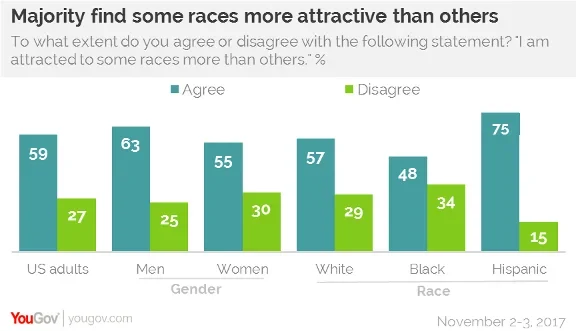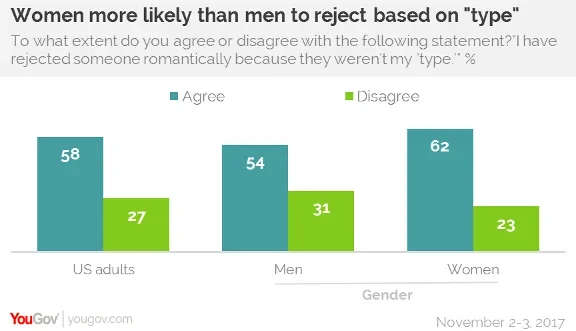And 56% of US adults have been in a relationship with someone just because they were their “type,” despite knowing they weren’t the right person for them
Recent studies have shown that humans (and even pandas) have romantic “types.” Lending credence to these scientific discoveries, the large majority of US adults (64%) report having a specific “type” of person they are typically attracted to, according to new data from YouGov Omnibus. In fact, over half of respondents (58%) have rejected someone just because they weren’t their “type.”
Despite how much stock Americans seem to put into finding their ideal partner, only 42% of individuals with a specific “type” are currently in a relationship with someone who meets their preferred credentials.
The great debate in dating has long been whether looks or personality are ultimately more important to potential suitors. When posed with this classic question, men were more likely than women to say that looks matter more than personality – 23% to 11%, respectively. Traditionally, one of the main aesthetic qualities that singles look for in future partners is optimal height. However, just 23% of Americans would turn down a romantic confession because the other person was too short or too tall for their liking.
Over the past few years, debate has sparked on the internet regarding whether partiality towards certain races while dating is racism or justified aesthetic preference. Nearly three in five (59%) US adults -- 63% of men and 55% of women -- report that they are attracted to some races more than others. At 75%, Hispanic Americans are more likely than white (57%) and black (48%) Americans to agree that race plays a role in who they find attractive.

While so many Americans have very distinct qualities they look for in a significant other, what many daters come to realize is that, just because someone ticks all the right boxes doesn’t mean they are the one. In fact, 56% of US adults with a distinct “type” have been in a relationship with someone only because they were what they pictured their “perfect” partner to be like, even though they knew they were the wrong person for them. Similarly, 62% of women and 54% of men have rejected someone solely based on them not being their “type.”










